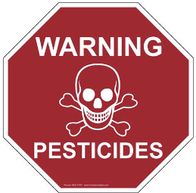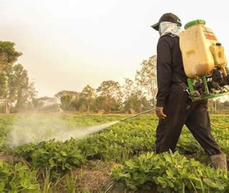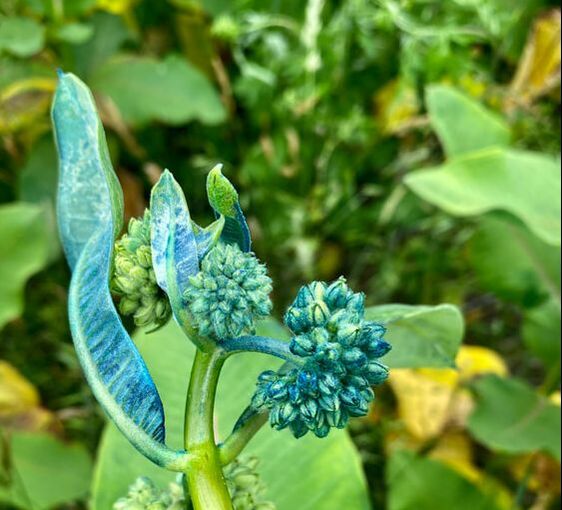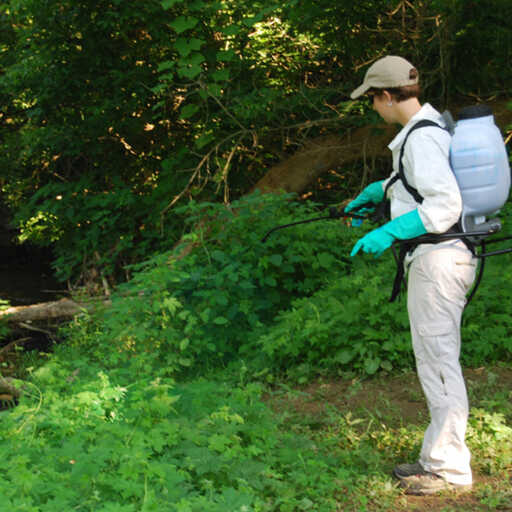Philly status: as of January 28th, 2021, Healthy Outdoor Public Spaces (HOPS) has officially been enacted into law.
However, the Parker Administration has so far refused to enforce on grounds overseen by Parks and Rec, shirking their duty to follow the law and protect public health. Toxic Free Philly is working to right this, but you can help.
THE FUTURE IS ORGANIC.
A provision in the HOPS bill requires Philadelphia Parks and Rec and all other government divisions that apply pesticides to public spaces to start keeping records of pesticide applications, which they were not doing previously to the passage of HOPS. The report was not made public, so TFP submitted a Right to Know request, which was approved.
The report showed that the City sprayed its own public lands with 16.2 tons of toxic herbicides in 2022 alone, and 15.64 tons in 2023.
The report showed that the City sprayed its own public lands with 16.2 tons of toxic herbicides in 2022 alone, and 15.64 tons in 2023.
GlyphosateThe total amount of glyphosate-based products used in Philly public spaces in 2023: Approx 5.45 tons, more than double the 2022 amounts.
|
2,4-D
|
PPR Staff sprayed over 9 tons of synthetic herbicides in 2023The stated use of the large majority of glyphosate by PPR staff was for
Ballfields, Building Perimeter Fence Lines, Trail and Forest Edges, Pavement Sidewalks, and Right of Way areas. |
NOW ACCEPTING APPLICATIONS to serve on HOPS ADVISORY COMMITTEE
Are you an expert in Organic Land Management, the occupational hazards of pesticide use, and/or environmental justice? Serve on the Public Health Department's inaugural HOPS Committee to enforce one of the most progressive pesticide laws in the country. Read more
Are you an expert in Organic Land Management, the occupational hazards of pesticide use, and/or environmental justice? Serve on the Public Health Department's inaugural HOPS Committee to enforce one of the most progressive pesticide laws in the country. Read more
|
New information: Every week new information is added to the already significant evidence that exposure to synthetic pesticides is linked to asthma, cancer, developmental and learning disabilities, nerve and immune system damage, liver and kidney damage, reproductive impairment, birth defects, and disruption of the endocrine system.
Children are the most vulnerable: Infants, children, pregnant women, the elderly, and people with compromised immune systems and chemical sensitivities are especially vulnerable. |
Our mission and vision
|
Toxic Free Philly is a growing coalition of concerned Philadelphia residents, visitors, neighbors, and organizations. We advocate for all Philadelphia public grounds to be safe, healthy, and thriving habitats for residents and wildlife alike. Our approach is to bring together public health experts, community leaders, business interests, the urban agriculture community, lawyers and local government to work to protect public health and restore environmental quality.
Our short term goals include an ordinance severely restricting the use of harmful, synthetic herbicides, particularly glyphosate and 2,4-D, on city grounds. We are currently arranging a collaboration around a pilot park program that will transition two public parks to organic management protocols. Our long term goal is to pass robust legislation in Philadelphia severely restricting the application of all harmful, synthetic pesticides on city grounds, including toxic insecticides, fungicides, and rodenticides, and replacing the toxic paradigm with organic land management protocols. |



